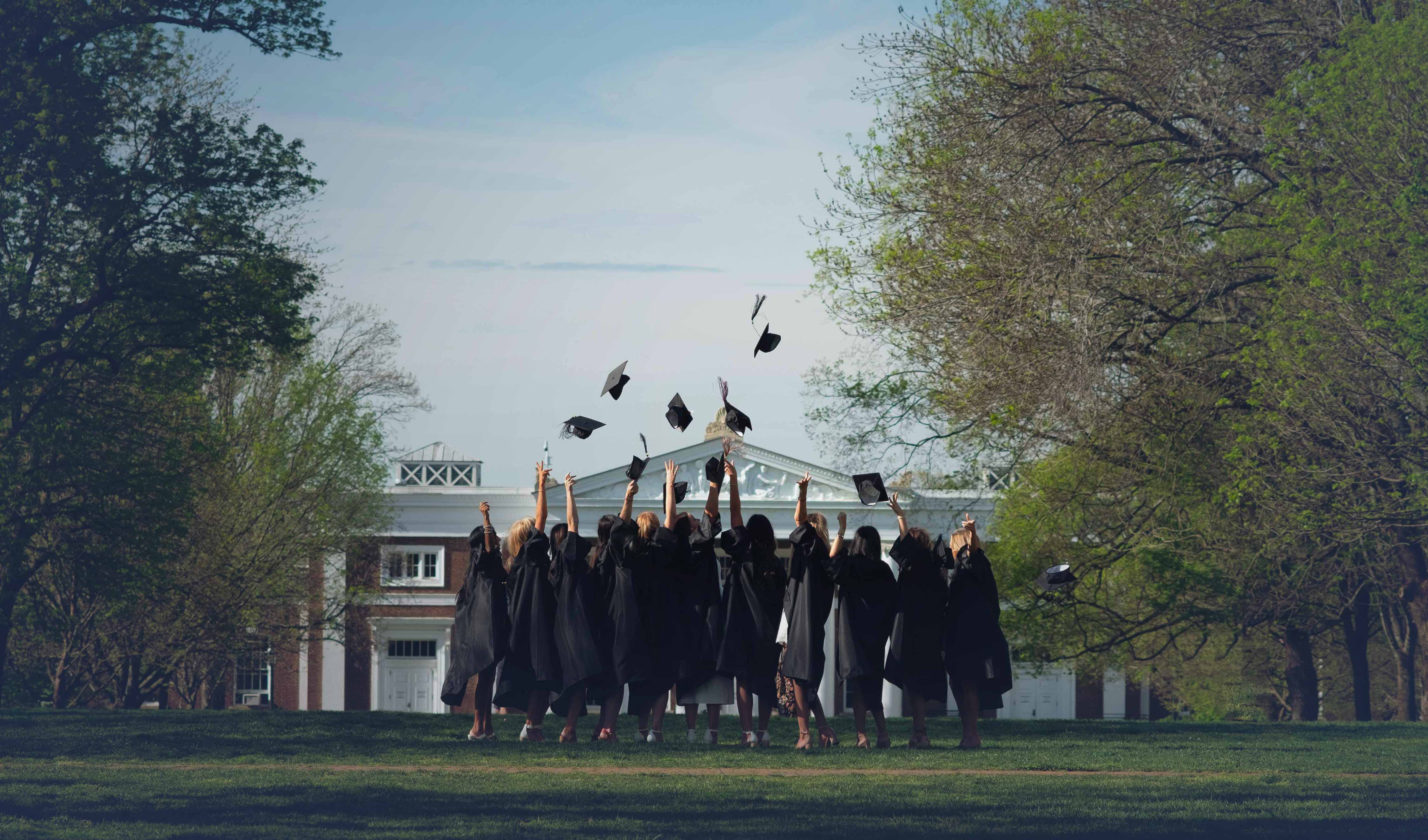

Honor the Future Teachers
Linh Luong (Col ’22, Ed ’24), a math major with a minor in Spanish, is one of tomorrow’s K-12 math teachers. She is teaching in a local high school as part of her Master of Teaching program. We can all respect that. She has her work cut out for her.
But what do tomorrow’s teachers know? Quite a bit, actually—and those in the School of Education and Human Development learn a great deal about what works in the classroom, thanks to the school’s teacher preparation program.
Luong explains that she’s seen firsthand that learning foundational concepts is critical for her students’ academic success. Something like a² + b² = c² is a key theorem all geometry students must understand to advance. You cannot skip that fundamental step and expect to go much further.
She is dedicated to helping students close such gaps in learning. “I’ve always been interested in helping those who are struggling in math, and in teaching the lower/foundational levels of math, like geometry and precalculus,” Luong said. “I want to give students a stronger foundation so they can apply it and succeed in the course.”

Luong knew she wanted to teach early on, but it was clear to her that her career path led to being a teacher after she worked at Kumon Math and Learning Center in her hometown of Ashburn, Virginia. “I enjoy progressing and advancing with the students as they learn,” she said.
Why math? “Math came easy to me in middle school and high school,” Luong said. “But in college I struggled a bit at first. I felt like I wanted help and didn’t know how to ask for it.”
She is aware of students who feel the same way. It’s the higher concepts in math that can be challenging and where gaps in knowledge become obvious. Gaps are not uncommon—but effectively recognizing and responding to students early on is critical to helping them overcome these challenges.
Another thing Luong knows is that schools need teachers from all backgrounds. She describes her sense of being drawn to teachers who were sensitive to her own experience. “I gravitated toward minority teachers. They were so few and far between. Something about them just struck me differently. I always thought they understood me.”
The Education School’s coursework in culturally responsive teaching stood out for her and proved valuable. “We were taught to make sure educational experiences and materials are relevant to students—that they matter to them, are appropriate, and avoid cultural bias,” said Luong.
The effects of the COVID-19 pandemic on the classroom are still having an impact. Luong was quick to note problem areas. “The classroom today is definitely different from when I graduated from high school in 2019,” she said. “COVID hit during my first year at UVA. I’m recognizing more behavior changes in students than I expected. I think they’re still having some trouble socializing, recognizing social cues, and knowing how to act in public. They were at home during some formative years, so it makes sense.”
During those years, many students also fell behind in learning the basic algebra that precedes geometry. Luong is helping students cope and catch up.
–LINH LUONG
She sees positives and difficulties. “I’m finding that a lot of my students seem to be performing better in geometry. So many of them are more visual people. They can recognize shapes and compare—that’s helpful. But there are a lot of algebra trouble spots or foundational gaps. Sometimes it’s even more than a gap and some students are retaking geometry many times.”
Support through the Tomorrow’s Teacher Fund at the School of Education and Human Development provides assistance for future teachers like Luong who face obstacles and knowledge gaps of their own: “The fund would help get past that hurdle of paying tuition,” said Luong. “Students would be able to pursue higher education without the fear of knowing how to pay for food or gas. It would take a lot of the burden away, emotionally and financially.”
This past weekend, Luong walked the Lawn to graduate with her master’s degree in teaching. What’s been most rewarding about her experience? “I think being able to recognize my own growth,” Luong said. “Since I had no formal teaching experience before this program, getting into it was different from what I imagined. My ability to bond with the students is better than I expected.”
Her students are fortunate. Luong is the kind of teacher today’s—and tomorrow’s—classrooms need.

